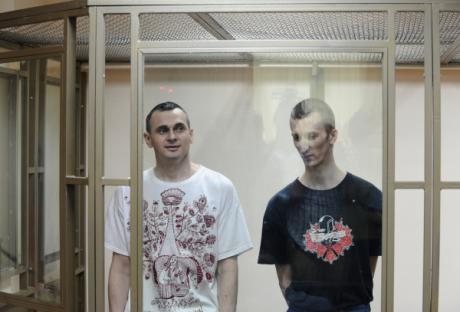The Crimean 4 were detained by the Russian FSB (ex-KGB), charged with committing "acts of terrorism" and "belonging to a terrorist community," and ultimately given prison sentences.
In modern Russia any activist — left-wing, anarchist or liberal — can be slandered as being a member or sympathiser of 'Right Sector'. This situation is comparable to the hunt for non-existent 'Trotskyists' under Stalin, or the McCarthy witch-hunt for communists. Putin’s authoritarian and nationalist regime, whose propaganda utilises everything from religious prejudice and conspiracy theories to outright racism, shamelessly steals 'antifascist' rhetoric to divert attention from its true aims. And yet anyone who is considered bothersome is called a 'fascist', even if s/he stands on the opposite side of the political spectrum.
The case is patently political. It is meant to intimidate the inhabitants of Crimea and prevent any resistance on the peninsula. The most authoritarian of methods are now used in an annexed Crimea to repress all discontent. Many people were obliged to flee the peninsula because their lives and freedom were threatened: lawyers, left-wing activists, students and trade union activists, anarchists, antifascists and Crimean Tatar activists, the latter having fallen victim to ethnic discrimination. The bulk of the prosecution's case was based on the testimony of Aleksei Chirnyi, a history lecturer, and Gennady Afanasyev, a lawyer. Both of these men, who took part in Maidan activities, were arrested in May 2014, and have provided the only 'evidence' of terrorist plans. The testimony of Gennadiy against Aleksandr and Oleg was later found to be forced and fabricated by torture, and he recanted it at his trial.
Picture:

